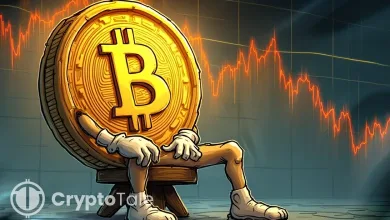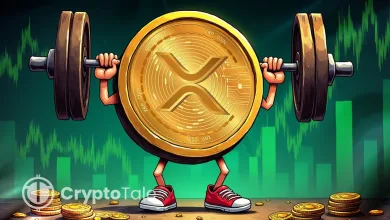The Blockchain Bulletin May 8: Coinbase Teams Up with Riot Games

Hey folks! Welcome to the latest edition of the Blockchain Bulletin, where we bring valuable and extensive news that hit the headlines in the past 24 hours. In a notable return to the esports sponsorship arena, Coinbase has struck a multi-event partnership with Riot Games, securing its position as the exclusive cryptocurrency exchange partner for global League of Legends and VALORANT tournaments.
Earlier, Riot had a deal with the now-defunct FTX that collapsed in 2022. Coinbase’s role will extend across multiple esports events, including League’s Mid-Season Invitational, World Championship, and VALORANT’s Champions Tour, beginning with the VALORANT Masters tournament in Toronto on June 7.
As part of this collaboration, Coinbase will sponsor real-time economic analysis segments such as “Econ Report” for VALORANT and “Gold Grind” for League of Legends, providing viewers with detailed financial metrics and strategic insights during matches
Meanwhile, Bhutan has launched the world’s first nationwide crypto payment system for travelers. With the partnership between Binance Pay and Bhutan’s DK Bank, the system enables tourists to use over 100 cryptocurrencies, including Bitcoin (BTC), Binance Coin (BNB), and USD Coin, across more than 100 local merchants, ranging from top spots to remote locations. All transactions are settled in Bhutanese ngultrum instantly, thanks to DK Bank’s integration with Binance Pay’s QR-based payment solutions
Related: Maldives Plans $8.8B Blockchain Hub With Gulf Investment
In monetary policy news, the Federal Reserve concluded its recent meeting in Washington, D.C., and maintained the federal funds rate between 4.25% to 4.5%. The Fed described the U.S. economic growth as “solid pace” despite ongoing trade-related uncertainties. It noted that while the labor market remained stable, concerns surrounding high inflation and broader economic forecasts are intensifying.
On the other hand, the U.S. Commodity Futures Trading Commission (CFTC) has officially withdrawn its appeal against Kalshi, the blockchain-based prediction market. This ends a significant legal conflict over whether Americans can legally trade event contracts based on election outcomes. Kalshi’s legal battle to get contracts predicting control of Congress approved for listing nearly ended in defeat. The regulatory body invoked gambling laws when prohibiting the listing. However, with the decision of the federal court in favor of Kalshi in September 2024, the CFTC seems to have let go of any further opposition, thus allowing political predictive markets to operate lawfully.
Also on Capitol Hill, U.S. Treasury Secretary Scott Bessent expressed strong support for a comprehensive national digital asset strategy, stating during testimony before the House Financial Services Committee that the U.S. must strive to be the “premier destination for digital assets.” Bessent highlighted the legislative momentum behind efforts to establish a robust regulatory framework that would allow American crypto standards to influence global policy.
Elsewhere, Ripple CEO Brad Garlinghouse announced a major shift in how the company reports its XRP market activities. Going forward, Ripple will discontinue its consolidated quarterly reports, opting instead for more flexible updates via blogs and social media, citing misuse of transparency disclosures in its previous legal battle with the SEC.
In markets, Bitcoin (BTC) surged past $97,290, completing a highly anticipated CME gap fill at $96,800. Analyst Mister Crypto confirmed the technical milestone via candlestick chart analysis, which showed a decisive breakout followed by short consolidation—a movement closely watched by traders as BTC approaches potential resistance zones
Related: Quant Price Prediction 2025-2035: Will It Hit $1,500 by 2035?
The long-awaited Pectra upgrade finally came to life on the Ethereum network at epoch 364032, introducing an array of powerful features that uplift usage and scalability. Among the EIPs implemented were EIP-7702, allowing externally owned accounts to act much like smart contracts (“smart accounts”); EIP-7251, which increases staking limits; and EIP-7691, which improves Layer-2 integration and performance.
The past 24 hours marked pivotal moves across crypto, from Coinbase’s esports comeback to Bhutan’s trailblazing payment system and regulatory shifts in the U.S. With Ethereum’s Pectra upgrade and Bitcoin’s market surge, the digital asset space is rapidly evolving. As institutions, governments, and developers align, the future of crypto continues to gain clarity, momentum, and mainstream validation.




